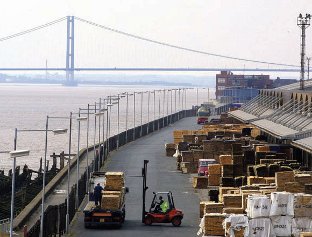Carbon counters
18 August 2012The Freight Transport Association’s Logistics Carbon Reduction Scheme aims to show that the sector can reduce emissions without the need for regulation. Rachael Dillon, FTA’s manager for climate change and policy communication, reports
The logistics industry provides a service for the whole economy. Whether it's delivering timber to merchants, milk to supermarkets or blood to blood banks, freight is imperative for keeping the country running. Because of this, the industry will always produce emissions, but it is vital we are aware of this and that we work together to reduce our carbon footprint as much as possible.
The UK is committed to reducing carbon emissions to 50% of 1990 levels by 2025 and at the Rio+20 summit in June, deputy prime minister Nick Clegg announced that from April next year companies listed on the London Stock Exchange will be required to report their greenhouse gas emissions in annual reports. "Counting your business costs while hiding your greenhouse gas emissions is a false economy," Mr Clegg said at the time.
Environment minister Caroline Spelman said the requirement would provide investors with "vital information".
The transport sector is responsible for around 21% of UK domestic greenhouse gas emissions and freight transport accounts for around a third of these.
In late 2009, rather than waiting for the government to influence the footprint of operators through fuel tax or regulation, the Freight Transport Association (FTA) wanted to offer industry a way of declaring and reducing their emissions voluntarily. With fuel representing nearly 40% of operation costs and every pound that the government takes on tax a pound that can't be spent on new vehicles or technology to reduce emissions, FTA decided to take action. So, along with a group of operators, it launched the Logistics Carbon Reduction Scheme (LCRS), an industry-wide initiative to record, report and reduce freight transport emissions.
Voluntary carbon reduction target
The LCRS is the first of its kind for the freight industry. It is free to join and enables operators to contribute to a voluntary carbon reduction target. Scheme members provide FTA with data on fuel usage, which is then converted into CO² equivalent (CO² e) emissions using government-approved conversion factors. Members are collectively committed to reducing the carbon intensity of their operations by 8% by 2015, based on 2010 levels. The results are recorded in an annual LCRS report.
Scheme members supply data confidentially and FTA can advise a company on its reporting as it will be different for every business. The FTA visits each scheme member at least once to talk through the reporting, to ensure that all data submitted is robust, credible and correct. Operators are asked to supply simple data like the amount of diesel used by the company, vehicle kilometres, turnover and full time equivalents. The main requirement is that operators are consistent in their reporting.
The scheme now has 66 companies on board and accounts for more than 58,000 commercial vehicles. Key members include Wolseley UK - a founding member, Eddie Stobart, Asda, DHL, Maritime Transport Ltd, John Lewis Partnership, Sainsbury's, Tesco and Wincanton. With endorsement from transport minister Mike Penning, who last year acknowledged it was a key initiative for industry, and the second annual report published showing that between 2009 and 2010 there was a 2.6% reduction in emissions intensity when measuring carbon against vehicle kilometres, the scheme has been a worthwhile tool for industry.
The overall aim of the scheme is to prove to government that taking regulatory action to make cuts in freight emissions is unnecessary because industry is doing it themselves. It proves the logistics sector is taking the issue of carbon seriously, and actively and voluntarily seeking ways to reduce emissions. However, it is critical that the scheme grows, as the Department for Transport will be undertaking a Freight Carbon Review later this year to assess the contribution industry is making to national greenhouse gas reduction targets. FTA's LCRS will form some of the evidence for this review and the more operators that sign up, the more influential this evidence will be.
As well as attracting operators, the LCRS also has a partnership scheme for organisations that can supply products and services to the sector which have a bearing on carbon emissions and proactively support the industry. The first was Bridgestone Tyres, which became an LCRS partner in May this year. The LCRS partnerships will also sponsor a series of LCRS Awards in 2013, aimed at recognising the contribution individual LCRS members are making to reduce the carbon footprint of their freight operations.
The timber industry can play its role in preventing regulation for the freight industry before it's too late by signing up for the scheme. It is free, it will demonstrate your company's green credentials, it provides a methodology and target for carbon emissions recording and reporting, it carries weight with the government, sector trade associations and buyers of logistics services and, finally, it is confidential

